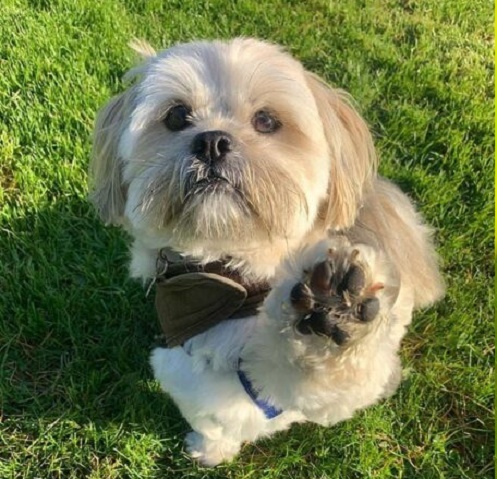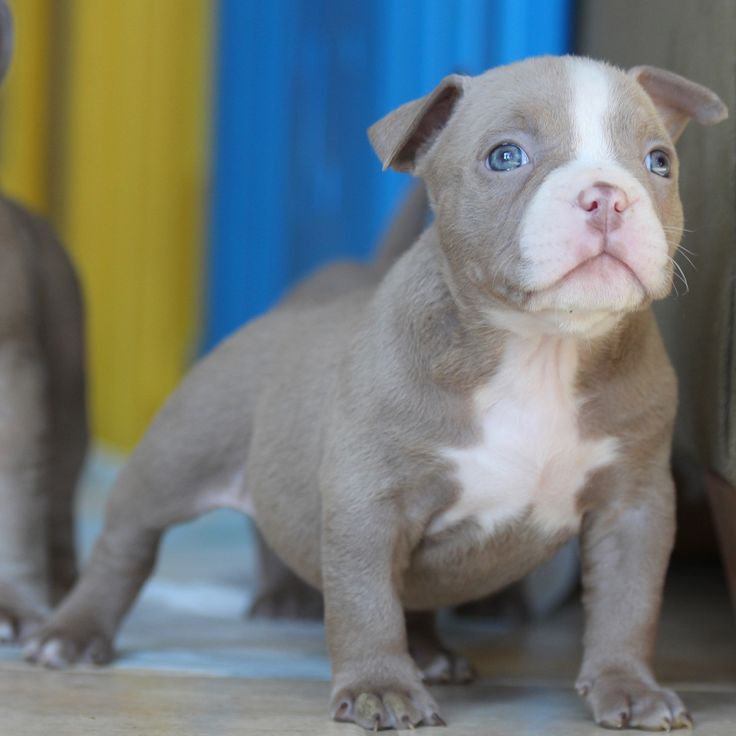Embrace the Laughter: Discovering the Lhasa Apso Lifestyle
Lhasa Apsos are more than just dogs; they’re companions with a rich history. Originating in the Tibetan highlands, they’ve been cherished for centuries as loyal guardians and affectionate pets. But what makes their lifestyle unique?
These small, fluffy dogs bring joy into any home with their playful spirit and charming personality. They thrive in various living environments, from cozy apartments to spacious houses. Their moderate exercise needs allow for a flexible routine, making them suitable for busy families and singles alike.
Learn more about what it’s like to have a Lhasa Apso. From their grooming needs to their playful antics, we’ll cover everything you need to know. Whether you’re considering adding one to your family or just curious about this delightful breed, you’ve come to the right place.
For those ready to welcome a furry companion, check out listings for Lhasa Apso puppies for sale. And if you want to see these adorable pups in action, enjoy this YouTube video on Lhasa Apso grooming styles!
History and Origins of the Lhasa Apso
The Lhasa Apso, a breed with a captivating history, has roots steeped in the culture of Tibet. Understanding where they come from sheds light on their unique persona and lifestyle. These dogs were more than just adorable companions; they played crucial roles in ancient Tibetan society.
Ancient Beginnings
Dating back to around 800 BC, the Lhasa Apso was revered in Tibetan culture. Often referred to as “Lion Dogs,” they were bred primarily as sentinel dogs for Buddhist monasteries. Their small size made them perfect for navigating the confines of the temple while keeping watch over the monks and their valuables. These dogs were not merely pets; they were valued protectors, known for their keen instincts and alert demeanor.
Cultural Significance
In Tibet, the Lhasa Apso wasn’t just a watchdog; it was a symbol of good fortune. They were often given as gifts to visiting dignitaries and held a status of reverence among the locals. Their presence in Buddhist culture underscored their importance; they were believed to bring luck and were associated with the spiritual well-being of their human companions.
The Lhasa Connection
Named after the city of Lhasa, the capital of Tibet, these dogs were developed in the harsh Tibetan climate. They have thick, heavy coats that shield them from cold weather, which has allowed them to thrive in high altitudes. As a result, the Lhasa Apso became synonymous with the rugged terrain of their homeland. Their temperament, endurance, and loyalty were honed through years of adaptation to this environment.
Transition to the West
The breed was introduced to the western world in the early 20th century, captivating those who encountered them. Not long after their arrival, the Lhasa Apso became popular in the United States and Europe, valued for their adorable looks and charming personalities. Today, they retain their historical significance while delighting families as treasured companions.
For more in-depth insights, you can explore the history of the Lhasa Apso or learn about the cultural significance this breed holds in Tibet.
As you continue your journey of understanding the Lhasa Apso, consider the unique traits that make them special. Their past has shaped not only their physical characteristics but also their affectionate and watchful nature, which you can experience firsthand with your own furry friend. For those curious about Lhasa Apso puppies, visit our listings to find your perfect match.
Physical Characteristics and Grooming Needs
Lhasa Apsos are known for their distinctive appearance and grooming requirements. Their beautiful coats and unique physical traits require regular attention to keep them looking and feeling their best.
Coat Types and Grooming Frequency
Lhasa Apsos have a long, flowing double coat that can vary from straight to slightly wavy. The outer coat is coarse and the undercoat is soft, making it essential to understand proper grooming techniques. Grooming is not just a luxury; it’s a necessity for the health and well-being of your Lhasa Apso.
To keep their coats in top condition, aim to brush them daily. This helps prevent mats and tangles that can develop quickly, especially in their dense fur. Use a slicker brush to effectively detangle and remove loose hair. A wide-tooth comb can also be helpful to work through any stubborn mats.
Every 4 to 6 weeks, consider scheduling a professional grooming session. A groomer can trim the hair around the eyes, ears, and paws for a neater look. Regular grooming not only maintains their appearance but also keeps their skin healthy.
For detailed grooming techniques, explore this guide on grooming a Lhasa Apso.

Maintaining Eye and Ear Health
Lhasa Apsos have distinctive facial features that can sometimes lead to eye and ear problems. Their long hair can obstruct their eyes, leading to irritation. To maintain their eye health, gently wipe the corners of their eyes with a damp cloth daily, especially if you notice any tear stains.
Their ears are long and can trap moisture, which may lead to infections. Keep their ears clean by checking them regularly for dirt and wax buildup. A simple routine involves using a cotton ball with a vet-approved ear cleaner. Wipe the outer ear, but avoid inserting anything deep into the ear canal.
Consider these tips for eye and ear maintenance:
- Daily Cleaning: Wipe eyes and ears with a damp cloth to prevent buildup.
- Regular Checkups: Have your vet examine your pup’s eyes and ears during annual checkups.
- Professional Help: Consult your groomer for advice on maintaining eye and ear health properly.
By following these grooming habits, you’ll ensure that your Lhasa Apso stays healthy and looks fabulous. For more tips on Lhasa Apso care, check out this comprehensive grooming guide.
Temperament and Personality Traits
Lhasa Apsos are known for their charming personalities and unique quirks. They possess a special blend of traits that influence their interactions with both humans and other pets, making them delightful companions in many households. Understanding their temperament can help you appreciate what life with a Lhasa Apso entails.
Social Interactions with Humans and Other Pets
Lhasa Apsos are often very affectionate towards their family members. They thrive on attention and love being included in daily activities. Their social nature makes them great companions for children and adults alike. However, they can be selective about their friends. They might take time to warm up to new people and may be aloof with strangers. This behavior can be attributed to their protective instincts, which were developed in their historical roles as watchdogs in monasteries.
When it comes to interacting with other pets, their personalities shine through. Lhasa Apsos can be quite feisty and may display a strong personality, especially with larger pets. They often enjoy playing and can be both playful and stubborn during interactions. Here’s what to expect:
- Affectionate: They show love and loyalty to their families.
- Protective: They may bark to alert you of strangers, reflecting their watchdog background.
- Playful: They enjoy playtime but can be particular about who they want to play with.
For insight into their general behavior, you can explore more on Lhasa Apso dog breed information.
Behavioral Traits to Anticipate
Lhasa Apsos have several behavioral traits that define their daily life. Here are some common characteristics:
- Independent Thinkers: Lhasa Apsos can be quite headstrong. They often have their own opinions and may not always follow commands immediately. This can add a layer of challenge but also charm to their training process.
- Loyal Companions: Their loyalty to family members is unmatched. Once they bond with someone, they will deeply care for them, often following them around the house and seeking affection.
- Vocal Guardians: Expect to hear their distinctive bark. Lhasa Apsos are known for being vocal and will communicate when something catches their attention. They can be excellent watchdogs, alerting you to any changes in their environment.
- Inquisitive Nature: These dogs are naturally curious about the world around them. They love investigating new sights and sounds, making walks and exploration highly stimulating.
- Occasional Cuddles: While they can be independent, Lhasa Apsos also cherish cuddle time. They enjoy sitting on your lap or snuggling next to you, providing affectionate moments amidst their spirited antics.
By understanding these traits, potential and current owners can better appreciate the vibrant personality of Lhasa Apsos. Their mix of loving nature and spirited behavior truly makes them one-of-a-kind companions. For those interested in bringing a Lhasa Apso into their life, check out Lhasa Apso puppies for sale.

Training and Socialization Tips
Training and socializing your Lhasa Apso are key elements in ensuring a happy and well-adjusted pet. With their distinct personalities, these dogs require a mix of effective training techniques and ample social interaction to flourish. Here are some tailored tips to help you guide your furry friend on the right path.
Basic Obedience Training: Outline essential commands and training strategies
Starting with basic obedience training can make a significant difference in your Lhasa Apso’s behavior. Here’s a breakdown of essential commands you should focus on:
- Sit: Teach your dog to sit by holding a treat above their nose and moving it back. When their bottom hits the ground, praise and reward them immediately.
- Stay: Once your dog can sit, introduce “stay.” While they are sitting, extend your palm towards them and say “stay.” Gradually increase the distance before rewarding.
- Come: This command is essential for their safety. Use a cheerful tone and reward generously when they approach you.
- Down: For many Lhasa Apsos, getting into a down position can be tricky. Encourage them by luring them with a treat from a sitting position to lying down.
Incorporate positive reinforcement throughout the process. This could be in the form of treats, praises, or playtime, as Lhasa Apsos respond well to encouragement. Consistent, short training sessions of about 5-10 minutes work best—this keeps their attention while making training enjoyable.
For more training strategies, consider checking out this insightful guide on 12 Secrets for Teaching a Lhasa Apso Puppy Obedience and learn more techniques tailored for Lhasa Apso owners.
Socialization Techniques: Discuss the importance of socializing your Lhasa Apso
Socialization is crucial for a well-rounded Lhasa Apso. Early exposure to various environments, people, and other pets helps them develop confidence and reduces the likelihood of fearful behaviors. Here’s how to effectively socialize your dog:
- Introduce New Experiences: Take your Lhasa Apso out to different places, like parks, pet-friendly stores, or bustling streets. Let them experience varied sounds and sights.
- Meet Different People: Encourage friends and family to interact with your dog. Provide treats to your dog when they behave calmly around newcomers.
- Playdates with Other Dogs: Organize gatherings with other well-behaved dogs. This will help your Lhasa Apso learn proper social skills. Teaching them to interact positively is essential for their development.
- Enroll in Puppy Classes: Consider a puppy training class for extra guidance and socialization. These classes can help your dog meet others while learning commands in a group setting.
- Positive Reinforcement: Always reward your Lhasa Apso for good behavior during social encounters. This creates positive associations with new experiences.
Remember, socialization efforts should begin early and continue throughout their lives. Your Lhasa Apso will benefit greatly from experiences that encourage their natural curiosity and reduce anxiety.
For comprehensive insights into proper training methods, feel free to explore the detailed guides available at Grateful Paw and other resources that focus on Lhasa Apso-specific training techniques.
Exercise and Activity Levels
Understanding the exercise and activity levels of Lhasa Apsos is essential for their health and happiness. These delightful dogs thrive on a combination of physical and mental activities that cater to their unique needs. Let’s explore what makes up their daily exercise requirements and some fun activities that keep them engaged.
Daily Exercise Needs
Lhasa Apsos, despite their small size, require about 30 to 60 minutes of exercise each day. This amount of activity is crucial for maintaining their physical health and mental well-being. Regular walks are a great way to meet these needs, and splitting this time into shorter sessions can be especially effective. For instance, two brisk 15- to 30-minute walks can work wonders.
Here are some key points to consider for their exercise routine:
- Walks: Daily walks should be brisk and engaging. Not only does it provide exercise, but it also gives them a chance to explore their surroundings and socialize.
- Playtime: Interactive playtime with toys also counts toward their exercise. Games of fetch or tug-of-war can stimulate their bodies and minds.
- Variety: Keeping their routine varied helps prevent boredom. Consider exploring different routes on walks or incorporating agility training in the backyard.
For a more detailed guide on how much exercise a Lhasa Apso really needs, check out this article on Lhasa Apso exercise requirements.

Fun Activities for Mental Stimulation
Mental stimulation is just as important as physical exercise for Lhasa Apsos. These intelligent dogs thrive on activities that engage their minds. Here are some fun ideas to keep them mentally sharp and entertained:
- Puzzle Toys: Toys that dispense treats when solved are excellent for mental engagement. They stimulate problem-solving abilities and can keep your dog busy for a while.
- Training Sessions: Teaching new tricks or commands is not only rewarding but also mentally stimulating. Short training sessions can enrich their minds and strengthen the bond between you and your dog.
- Hide and Seek: Play a game of hide and seek with your Lhasa Apso. Hide somewhere in the house and call them. This stimulates their natural instincts and provides a fun challenge.
- Scent Games: Hide treats around the house for your pup to find. This taps into their natural sniffing abilities and keeps their minds active.
- Play Dates: Arrange play dates with other friendly dogs. Social interaction helps them learn to play appropriately and burn off some energy together.
For more activities that can keep your Lhasa Apso engaged, visit this guide on top activities for Lhasa Apsos.
Incorporating a balance of physical exercise and mental stimulation ensures that your Lhasa Apso remains happy and healthy. By devoting time to both aspects, you create a well-rounded routine that benefits both you and your furry friend.
Health Considerations and Care
Taking care of a Lhasa Apso involves understanding their health needs and ensuring they receive regular medical attention. Like any dog, they require routine veterinary check-ups and an awareness of common health issues that may affect them. Keeping a close eye on their health will help them live a happy and long life.
Routine Veterinary Check-ups
Regular veterinary visits are vital for your Lhasa Apso’s overall health. Scheduling check-ups at least once a year allows your vet to monitor for any potential health concerns. These visits often include vaccinations, dental check-ups, and wellness exams. It’s a good practice to keep your dog up to date on vaccinations, as Lhasa Apsos can be prone to conditions like parvo, rabies, and distemper.
During check-ups, make sure to discuss any changes in your dog’s behavior or appetite. These can be early indicators of health issues. Blood tests can also offer insight into their kidney and liver function, helping detect problems early. Moreover, regular dental cleanings can prevent tooth decay and gum disease, common in small breeds.
You may consider reading about additional care tips on Lhasa Apso health and care to ensure your furry friend stays in peak condition.
Common Health Issues in Lhasa Apsos
Lhasa Apsos are beloved for their personalities, but like all breeds, they come with specific health concerns. Familiarizing yourself with these issues allows for better preventative care. Here are some common health problems to watch for:
- Eye Conditions: Lhasa Apsos are prone to eye problems like cataracts and progressive retinal atrophy. Regular veterinary eye exams can help catch these issues early.
- Patellar Luxation: This condition occurs when the kneecap dislocates, leading to discomfort and mobility issues. It can be hereditary, making it crucial to monitor for signs of limping or difficulty walking.
- Dental Disease: Small breeds, including Lhasa Apsos, often face dental challenges. Regular dental care helps prevent tooth loss and gum disease.
- Renal Dysplasia: Kidney issues, including cysts, are more common as they age. Watch for symptoms such as increased thirst or urination, which could signal kidney problems.
- Brachycephalic Airway Syndrome: Due to their flat faces, some Lhasa Apsos may experience breathing difficulties. Keeping your dog in a cool environment can help manage these symptoms.
Keeping an open line of communication with your veterinarian is critical. They can advise on the best care practices and vaccinations necessary for your Lhasa Apso. For a more comprehensive understanding of health concerns, refer to resources like Lhasa Apso breed information.
Regular attention to these health considerations ensures your Lhasa Apso can enjoy a fulfilling life. Make their health a priority, and you’ll both benefit from a loving and active relationship for years to come.
Lhasa Apso as a Family Pet
Lhasa Apsos can make wonderful family pets, adapting well to various living situations while also being affectionate companions. Their personalities and needs align with common family dynamics, creating a nurturing environment for both the dog and the family.
Living Arrangements and Space Requirements
Lhasa Apsos are remarkably adaptable when it comes to living arrangements. Whether you reside in a spacious house or a cozy apartment, these small dogs fit right in. Their compact size makes them ideal for urban living, where outdoor space may be limited.
- Apartment Living: Lhasa Apsos do well in apartments, as their exercise needs can be met with daily walks and indoor play. They thrive on companionship and are just as happy playing fetch in a living room as they are in a backyard.
- House Living: In a house, they enjoy room to roam. A secure backyard is a bonus, allowing them to explore and play off-leash while still enjoying the supervision of their human companions.
Their moderate exercise requirement, about 30 to 60 minutes daily, means they can easily adapt to your family’s lifestyle. So, whether you enjoy active outdoor outings or prefer quieter indoor games, a Lhasa Apso will happily join you.
For tips on finding the right Lhasa Apso for your living situation, visit our page on Lhasa Apso for sale.
Compatibility with Children and Other Pets
One of the most admirable traits of Lhasa Apsos is their compatibility with children and other pets. When properly socialized and trained, they can be delightful companions for families.
- Interaction with Children: Lhasa Apsos are generally affectionate and can be good with children, particularly when introduced properly. They have a playful nature that can engage kids, making them a suitable family addition. However, like all dogs, they should never be left unsupervised with young children to ensure safety on both sides. Proper training and supervision are key to fostering a positive relationship.
- Behavior Around Other Pets: Their interaction with other animals can vary. Lhasa Apsos may be reserved with unfamiliar dogs but can develop friendly bonds with those they grow up with. Early socialization is vital to help them become accustomed to other animals. They can coexist well with other pets if gradually introduced and monitored.
Here are a few more insights on their temperament:
- Affectionate Companions: They thrive on attention and enjoy cuddling, which makes them great companions.
- Protective Instincts: Their watchdog nature means they may bark at strangers, serving as a protective force for the family.
For further insights into their compatibility with children, check out this article on Are Lhasa Apsos Good with Kids?.

Whether you’re considering a Lhasa Apso for your family or looking to understand their compatibility, their adaptability and affectionate nature make them a charming addition to many households.
Conclusion
As you wrap up your exploration of the Lhasa Apso lifestyle, it’s clear that these dogs are more than just pets; they’re loyal companions who bring joy and personality into our lives. Understanding their unique needs and traits is crucial for anyone considering welcoming one into their home.
Key Takeaways
- Adaptability: Lhasa Apsos thrive in a variety of living situations, making them suitable for both apartment and house living.
- Affectionate Nature: They are known for their loyalty and affectionate demeanor, often forming strong bonds with their families.
- Exercise and Play: Regular physical activity and engaging mental stimulation are essential for their well-being. A mix of walks and playtime helps keep them happy and healthy.
- Grooming Needs: Their long, beautiful coats require regular grooming to prevent matting and maintain skin health.
- Health Awareness: Routine vet check-ups and monitoring for common health issues will keep your Lhasa Apso in great shape.
Final Thoughts
Owning a Lhasa Apso is about embracing a pet that combines history, charm, and a unique personality. If you’re thinking of expanding your family with one of these delightful companions, learn more about what they need to thrive. Consider visiting the Lhasa Apso puppies for sale page to find your future furry friend and step into a lifestyle that promises laughter, love, and loyalty.
For further information on health and care specifics, check out Lhasa Apso breed health and care. This knowledge will help ensure you create the best environment for your new companion!
Resources for Lhasa Apso Owners
Owning a Lhasa Apso comes with its own unique set of responsibilities and joys. For those who are just starting their journey or looking to deepen their understanding, having access to the right resources is crucial. Below are some valuable links to help you navigate through buying, training, and caring for your Lhasa Apso.
Lhasa Apso for Sale Near Me
If you’re ready to find a Lhasa Apso to welcome into your home, start your search by visiting Lhasa Apso for Sale Near Me. This resource can help connect you with reputable breeders and ensure you are adopting a healthy pup.
Lhasa Apso Puppies Available
Looking for adorable puppies available for adoption? Check out the Lhasa Apso Puppies Available page. Here, you can find a variety of puppies that are ready to join loving homes. Spend some time reviewing their personalities and health records to find the perfect match for your family.
Training Resources for Lhasa Apsos
Training is essential for a well-behaved Lhasa Apso. For specific training resources tailored to the breed, visit Training Resources for Lhasa Apsos. This guide offers insights into effective training techniques, behavior management, and creating a strong bond with your pup.

















































